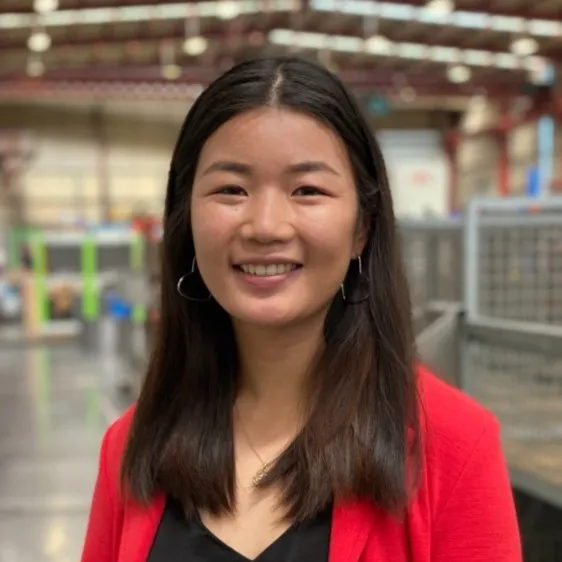Facteon People: Summer Intern to Engineering Assistant
How have you navigated the transition from Summer Intern to Engineering Assistant?
I found the transition to be relatively smooth as I had already worked alongside our Digital Manufacturing and Automation team during my internship. The main way in which I’ve adapted is the ways of working within each team. I am grateful that I’m able to apply my robotics knowledge which I learned during my internship. I would say that is a contributor to the shift from Summer Intern to Engineering Assistant to be relatively straight forward. Now, I’m working alongside control systems engineers. Even though some elements, such as robotics programming, from my internship is transferable, I am now building on this skill set and expanding my knowledge which has been great.
As I am working at Facteon part-time while I complete my degree, it has been great to apply what I’m learning at University within industry all in the same week.
What’s the best career advice you’ve received?
It’s easy to be defensive of your own work. So, I’ve learned to take advantage of the range of viewpoints throughout the team. While there is some crossover between my internship and current role, I’ve learned a lot about the specifics of offline programming for robots from shadowing more experienced engineers. I thoroughly recommend this to people at any stage in their career. It’s always helpful to see the same challenge through a different lens.
Where do you see yourself in five years?
My short term goal is to continue building technical skills, particularly in relation to Industrial IoT. It’s a developing area and I’m in a unique position to gain exposure to these new technologies early in my career. Manufacturers are well aware of the potential of these technologies so it’s important for manufacturing technology partners to cement this skill set within their own organisations so that they can continue offering technologies that make a real difference in manufacturing facilities.
Thinking longer term, I’m looking to build my customer-facing skills. From working alongside our more senior engineers, it is key to take the customer’s requirements and to deliver a solution that meets their needs and is cost-effective. This process of unravelling the range of needs and wants throughout an organisation to create a solution which is fit for purpose is a skill I’m looking to develop.
What is your advice to the next Facteon Intern?
Be ready for a challenge. There is so much to learn with every facet of the manufacturing industry having its own unique challenges. Also, don’t shy away from evolving manufacturing technologies, such as Industrial IoT. These new technologies have already started to underpin the future of the industry. So, I’d encourage everyone, especially those starting out in their careers, to understand how these technologies will disrupt manufacturing.

Debbie Peng
As an Engineering Intern with Facteon, Debbie is focused on automating the set up process for robotic arms through the smart application of software. Debbie is set to graduate the University of Auckland in 2021 with a Bachelors of Engineering (Honours)/Bachelors of Commerce conjoint degree, specialising in mechatronics, and majoring in marketing and finance.

